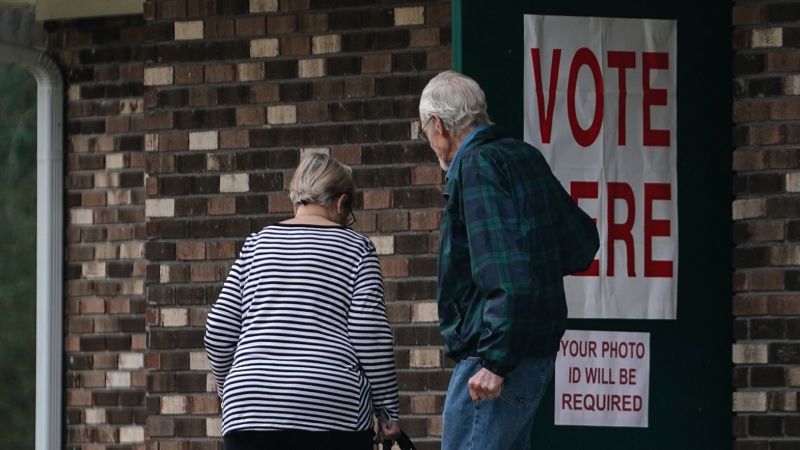A new analysis by the Brennan Center for Justice at New York University’s law school has found that over half of the states in America have implemented voting restrictions since the last presidential election in 2020. Twenty-eight states, including battleground states like North Carolina and Republican strongholds like Alabama and Idaho, have made it harder for people to cast ballots through various laws enacted since 2020. These new laws target various stages of the voting process, from registration to mail voting to voter ID requirements.
One of the types of laws that have been enacted seeks to restrict voting by mail, a method that former President Donald Trump and his supporters have falsely claimed is susceptible to fraud. States like Alabama and Idaho have implemented laws that impose criminal penalties for assisting with absentee voting, a practice that critics label as inappropriate “ballot harvesting.” Alabama’s law, for example, prohibits returning an absentee ballot on behalf of another voter and makes it a felony to accept payment for distributing or collecting absentee ballot applications.
Opponents of these new laws argue that they disproportionately target marginalized groups who rely on assistance to vote, such as the elderly. In North Carolina, a battleground state for the upcoming elections, a new law mandates that mail-in ballots must be received by 7:30 p.m. on Election Day to be counted, eliminating a previous three-day grace period. Before this law, over 8,600 absentee ballots arriving within the grace period were accepted in the 2022 midterms.
Another trend highlighted in the report is the increase in bills aimed at regulating deepfakes and content generated by artificial intelligence in elections. Legislation has been introduced in at least 39 states to safeguard against artificial intelligence content, with nine states enacting laws requiring notices that the message was manipulated. On a positive note, the analysis also found that some states have expanded access to the ballot, with 11 states enacting laws that make it easier to vote. Kentucky, for example, now allows mail ballots to be sent to addresses other than those on file, making it easier for college students to cast absentee ballots.
Additionally, Nebraska has restored voting rights for ex-felons who have completed their sentences, including probation, without having to wait the two years previously required. The Brennan Center highlights a clear divide between states making it harder to vote and those making it easier, emphasizing the importance of individuals familiarizing themselves with their state’s voting rules ahead of the upcoming elections. Given the changing landscape of election laws, understanding these rules will be crucial for those planning to cast ballots in the fall.


